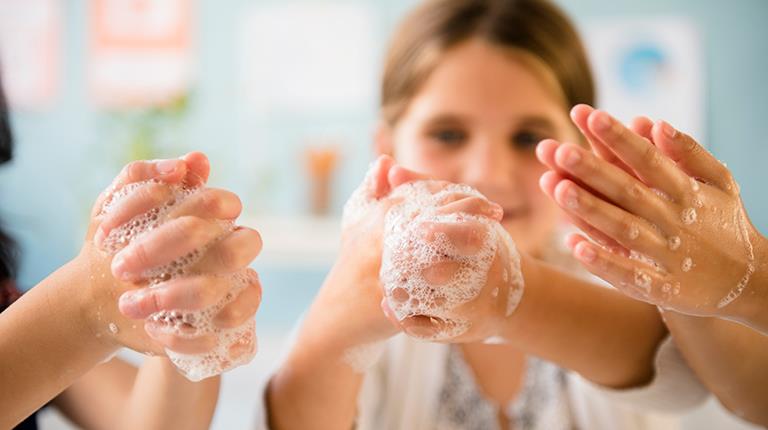What keeps people from washing their hands as recommended?
Think you're a hand-washing expert? Take our quiz and test your knowledge.
Figuring that out can make a real difference, said Dr. Arjun Srinivasan, an associate director at the U.S. Centers of Disease Control. An epidemiologist, he leads efforts to reduce infections in healthcare settings. In a hospital, sometimes that means simply moving the hand sanitizer dispenser. But good hand hygiene works everywhere – at work, at school, in child care centers and at home, he said.
“It’s been shown time and time again. This is something that makes good sense,” Srinivasan said.
The CDC, as well as the World Health Organization, emphasize clean hands in their efforts to improve public health and prevent the spread of disease. Good hand-washing has five steps: wet, lather, scrub, rinse, according to the CDC. Some key times to wash hands are:
- Before eating
- After using the bathroom or diapering a baby
- After blowing your nose, coughing or sneezing
How much do you know about washing your hands? Test your knowledge by taking this quiz!
“It’s not that people don’t believe the science behind hand-washing,” Srinivasan said. “They usually say they’re too busy or that they simply forgot. Reminders are a good idea, even for doctors,” he added. “It’s OK to ask your doctor if he or she washed her hands before examining you.”
Srinivasan also says patients find it helpful to phrase it this way: “I’ve been told to ask you…” or “The CDC says I’m supposed to remind you to…”
Patients who are more vulnerable to infection, such as people who have primary immunodeficiency diseases, can also take the initiative with friends and family, Srinivasan said. The Immune Deficiency Foundation offers advice on hand hygiene in its handbook for patients and families.
Maintaining clean hands is a way for loved ones to show they care. Any kind of soap is fine, Srinivasan said. And when hands are not visibly dirty, hand alcohol-based hand sanitizer works well as an alternative.
Have a reluctant hand washer in your life? Srinivasan says patients can bring up the subject by saying something like: “These are all the things you can do to keep me from getting sick.”



